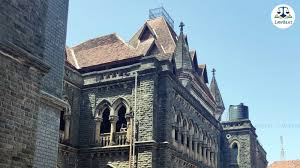Right To Life Sacrosanct; Any Encroachment Will Be Dealt With Strictly: Bombay High Court

The high court in its order noted that since the arrest of a person is a drastic and desperate stage, it must necessarily be effected upon following the procedure prescribed
The Bombay High Court has recently observed that the right to life and liberty under Article 21 of the Constitution is sacrosanct and any encroachment will be dealt with strictly.
“Reiterating that right to life and personal liberty is the most sacrosanct fundamental right guaranteed under Articles 20, 21 and 22 of the Constitution of India and any attempt to encroach upon the same would be looked at with all seriousness and to be dealt with strictly, it is specifically held that the right to be informed about the grounds of arrest flows from Article 22(1) of the Constitution of India and any infringement of this fundamental right would vitiate the process of arrest and remand,” the order states.
The division bench of the high court comprising Justice Bharathi Dangre and Justice Manjusha Deshpande was hearing a petition filed by one Mahesh Naik, who was arrested by the police without informing about the grounds of arrest.
Mahesh was arrested by the police in February 2024 in a cheating case without being informed about the grounds of arrest.
In his plea, Mahesh sought to be released from judicial custody on the grounds that the procedure established under Section 50 of CrPc was not complied with.
The bench noted that it was evident that the grounds of arrest were not furnished to the petitioner in writing and the arrest/surrender form/panchnama produced before the bench was not filled.
The high court in its order noted that since arrest of a person is a drastic and desperate stage, it must necessarily be effected upon following the procedure prescribed.
“Since arrest of a person is a drastic and desperate stage, it must necessarily be effected upon following the procedure prescribed and this include compliance of various provisions contained in Chapter V of the Code. Article 22 in form of a fundamental right, also makes it imperative that as soon as a person is arrested and if he has to be detained in custody, he should be informed of the grounds of his arrest, which will enable him to consult and to be defended by a legal practitioner,” the order states.
The bench also directed the public prosecutor to furnish a copy of its order to the director general of police to circulate it to all additional director general of police and inspector general of police
Case title: Mahesh Pandurang Naik vs State of Maharashtra
